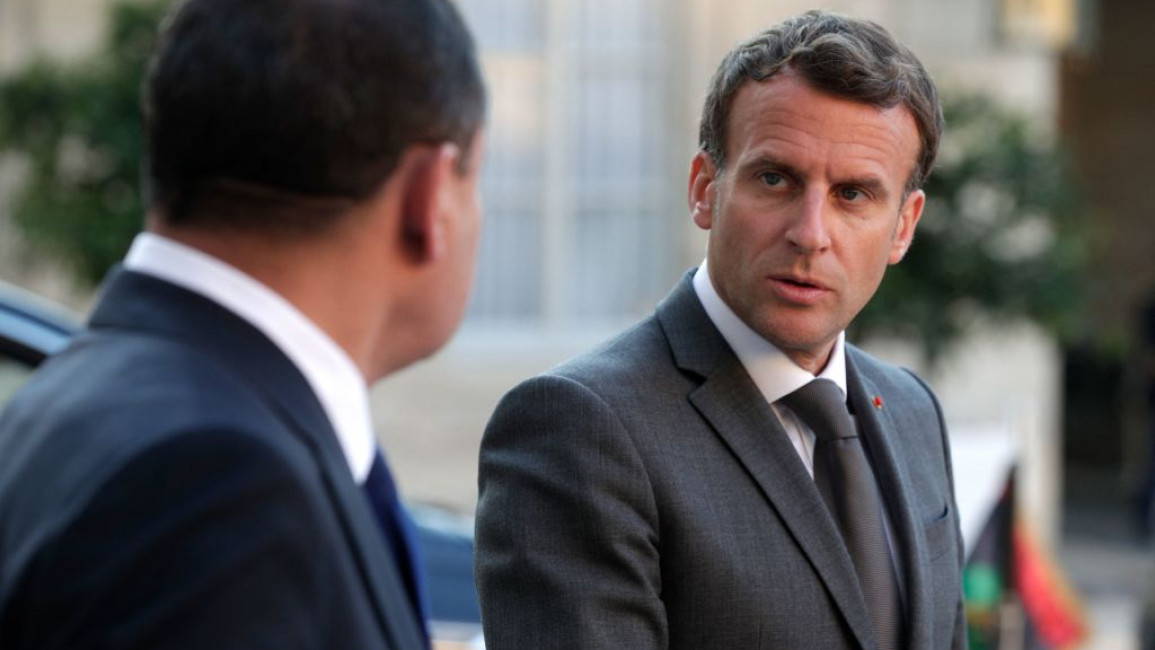Macron will host Paris conference to keep Libyan elections on track
French President Emmanuel Macron will host on Friday an international conference aimed at ensuring Libya sticks to a plan to hold elections in December and turn a new page in its history, a decade after the overthrow of dictator Muammar Muhammad al-Gaddafi.
The hydrocarbon-rich North African country has been mired in civil war since the killing of Gaddafi in a 2011 uprising, with the bloodshed drawing in competing Libya factions and Islamist groups, as well as regional powers.
Both the presidential vote on December 24 and the legislative elections are the centrepiece of a UN plan to help restore stability. But, the calendar has been under pressure as tensions resume between rival camps.
There are also fears over whether the various factions will recognise the results of the votes, which would mark a turning point in stability for a country that has become a major departure point for migrants seeking to cross the Mediterranean for Europe.
Key players attending the meeting will include US Vice President Kamala Harris, who is on a visit to France aimed at improving ties, and Egyptian President Abdel Fattah al-Sisi, one of Paris' closest allies in the Middle East.
Also attending, in a rare visit to Western Europe amid longstanding tensions between Moscow and the West, is Russia's Foreign Minister Sergei Lavrov.
But the level of representation from Turkey, another key regional power, remains unclear.
"The elections are within grasp. There is a strong momentum in Libya for them to go ahead. The stability of the country is at stake," said a French presidential official, who asked not to be identified by name.
"But there are 'spoilers' who are trying to derail the process," the official said.
Elysee officials are at pains to present the conference as an international effort, co-presided by France, Germany, Italy, the United Nations and Libya itself.
But it represents the latest foray into high-stakes international diplomacy by Macron, who is expected to seek re-election in April and whose country also takes on the EU presidency in January.
France has faced accusations that it favoured the secular Moscow-educated strongman of eastern Libya, Khalifa Haftar, in the conflict with the UN-backed government in Tripoli. Paris has rejected the claims.
Macron has repeatedly urged an end to foreign military presence in Libya, notably that of Turkey, which sent in troops, as well as pro-Ankara militia units from Syria to shore up the Tripoli government.
But observers also accuse Moscow of deploying mercenaries belonging to the Wagner group, which is allegedly controlled by a close ally of Russian President Vladimir Putin.
Macron wants the conference to endorse a plan for the departure of all foreign forces and mercenaries, the French presidential official said.
The level of representation from Libya is also not clear.
Mohamed al-Menfi, the head of the transitional presidential council that currently carries out head-of-state functions ahead of the elections, is expected in Paris.
But it is not certain that Libyan Prime Minister Abdul Hamid Dbeibah will come amid reported tensions between him and al-Menfi.
One likely absentee is set to be Algeria's President Abdelmadjid Tebboune, who was invited by Paris, but is set to stay away after taking umbrage at comments by Macron criticising his country's "political-military system."
Earlier this week, Libya opened registration for hopefuls in the elections, with speculation mounting over possible presidential bids by Haftar and by Gaddafi's son Seif al-Islam, both deeply divisive figures.
The scheduling also remains unclear - presidential and parliamentary elections are slated for December 24, but in early October, parliament split the dates of the vote by pushing back the legislative elections until January.
However, foreign powers have been pushing hard for both elections to still be held on the same date, as agreed at UN-led talks last year.



